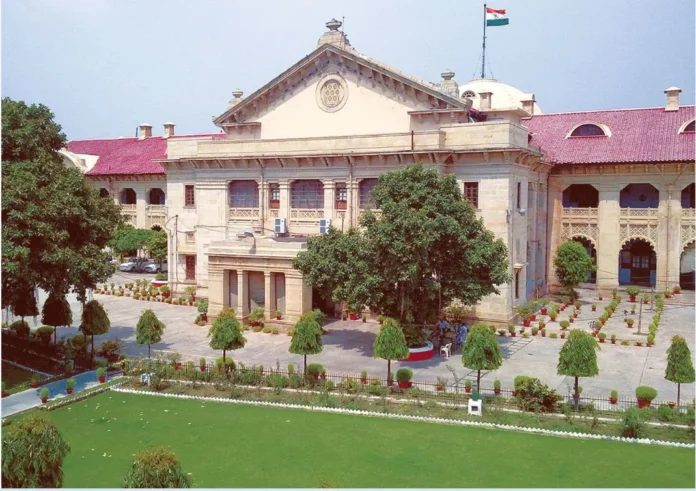The Allahabad High Court has observed that people in India were free to choose and change their religion, however, such changes must adhere to legal procedures.
The observations were recently made by the Bench of Justice Prashant Kumar on a petition filed under Section 482 CrPC by one Waris Ali, a Muslim by religion and his wife, Anjani, a Hindu by religion, seeking to quash an FIR lodged against Ali in 2006 under Sections 363, 366, 366A, 504, 506, 376 IPC and 7/8 and 3/4 POSCO Act.
The single-judge Bench noted that a person was required to submit credible proof of a desire to convert one’s religion, as well as clear overt actions to carry out such a desire.
The High Court also outlined a clear step-by-step process for changing one’s religion, emphasizing the importance of legal formalities and public scrutiny.
It said that for religion change, an affidavit has to be prepared mandatorily. Thereafter, an advertisement should be placed in the newspaper with wide circulation in that area, to ensure that there was no public objection to such change and that the conversion was not fraudulent or illegal.
The single-judge Bench noted that the newspaper advertisement must specify details like name, age and address. Thereafter, there should be notification in the National Gazette, which was an online record published by the Central Government of India.
After filing of the gazette application, the application would be inspected closely and once the department was convinced that everything was in order, the religion change application would be published in the e-Gazette, it added.
The High Court said the change in the religion had to be legal so that the new religion was reflected in all government IDs across the country.
The petitioner contended that the girl (the alleged victim) had entered into marriage with applicant no. 1 voluntarily, after changing her religion (from Hindu to Muslim) and in her statement recorded under Section 164 CrPC she categorically stated that she gave birth to a girl child and the father of the child was applicant no. 1 and as such, the submission was that no offence as alleged has been made out against the applicant no. 1.
The single-judge Bench noted that in India, it was open for anybody to change their religion but merely an oral or written declaration did not constitute conversion.
It directed the Counsel appearing for the State of Uttar Pradesh to verify that such conversion was not done to overreach the legal hurdles or under any pressure or greed and also to ascertain the facts whether the conversion was just for the sake of marriage or has been carried out.
The High Court then listed the matter for further hearing on May 6.


